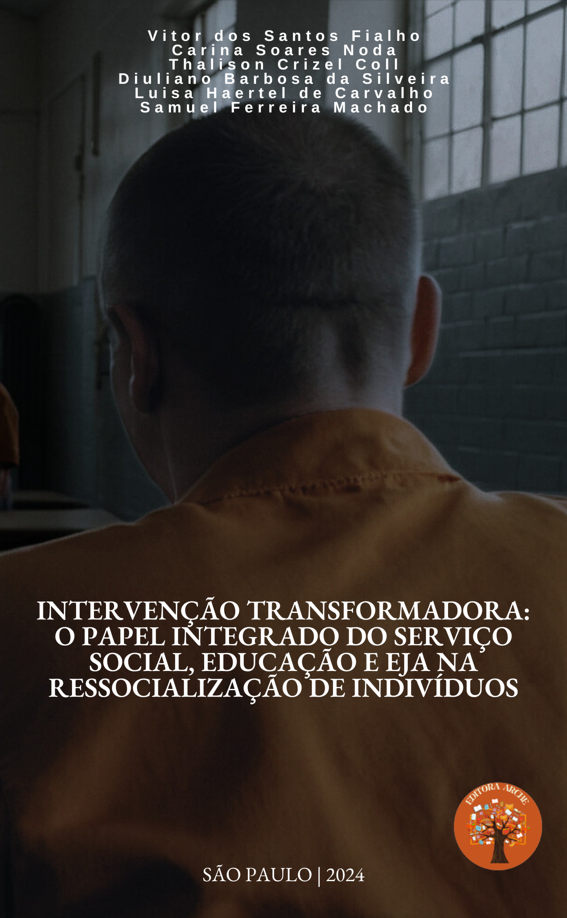TRANSFORMATIVE INTERVENTION: THE INTEGRATED ROLE OF SOCIAL SERVICE, EDUCATION AND EJA IN THE RESOCIALIZATION OF INDIVIDUALS
Keywords:
EJA. Resocialization. Prison Houses. Tool. Social Management.Abstract
Dear readers,
We are excited to present to you our digital book, a work that delves into the topic of resocialization in the Brazilian prison system. In this book, we highlight the fundamental role of Social Services, Education and Youth and Adult Education (EJA) in this transformation process.
In Brazil, Youth and Adult Education (EJA) plays a crucial role in the educational inclusion of millions of people who did not have access to basic education at a regular age. IBGE data reveal that approximately 11% of the Brazilian population aged 15 or over is still considered illiterate. This highlights the continued need for EJA programs to guarantee the right to education for all.
The challenge of resocialization in the Brazilian prison context is monumental. More than 70% of individuals serving sentences repeat crimes after being released, according to statistics from the Ministry of Justice and Public Security. This highlights the urgency of effective social reintegration strategies, where programs that encompass education, work and psychosocial assistance play a vital role in reducing criminal recidivism and promoting productive reintegration into society.
Brazilian prisons face a series of challenges, from overcrowding to precarious infrastructure conditions and human rights violations. According to the CNJ, the average occupancy rate of prison units in the country exceeds 160%, contributing to an environment conducive to violence and disrespect for the dignity of inmates, guaranteed constitutionally.
In this context, we discuss efficient social management as a fundamental tool to ensure the adequate functioning of policies and programs aimed at education and resocialization in the prison context. Only through participatory and responsible social management will it be possible to face the challenges and promote significant changes in the Brazilian prison system.
We invite you to embark on this journey with us, where we explore not only the challenges, but also present strategies favored by EJA to promote transformation in the Brazilian prison system. We firmly believe that education plays a central role in this process, offering opportunities for learning, personal development and preparation for a dignified life after serving your sentence.
This ebook not only analyzes the current situation, but also offers a prospective perspective, inspiring concrete and effective actions to promote the resocialization and social reintegration of individuals deprived of liberty.
We are confident that this book will be a valuable tool for professionals, researchers, public managers and all those committed to building a more just, humane and effective prison system.
Welcome to this journey of reflection, learning and transformation!
Happy reading to everyone,
The authors,
Downloads

Downloads
Published
How to Cite
License
Atribuição CC BY
